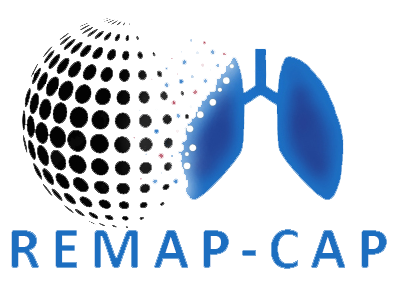There is broad interest in improved methods to generate robust evidence
regarding best practice, especially in settings where patient conditions are
heterogenous and require multiple concomitant therapies. Here, we present the
rationale and design of a large, international trial that combines features of
adaptive platform trials with pragmatic point-of-care trials to determine best
treatment strategies for patients admitted to an intensive care unit with severe
community-acquired pneumonia. The trial uses a novel design, entitled “a
randomized embedded multifactorial adaptive platform.” The design has five
key features: 1) randomization, allowing robust causal inference; 2) embedding
of study procedures into routine care processes, facilitating enrollment, trial
efficiency, and generalizability; 3) a multifactorial statistical model comparing
multiple interventions across multiple patient subgroups; 4) response-adaptive
randomization with preferential assignment to those interventions that appear
most favorable; and 5) a platform structured to permit continuous, potentially
perpetual enrollment beyond the evaluation of the initial treatments. The trial
randomizes patients to multiple interventions within four treatment domains:
antibiotics, antiviral therapy for influenza, host immunomodulation with
extended macrolide therapy, and alternative corticosteroid regimens,
representing 240 treatment regimens. The trial generates estimates of
superiority, inferiority, and equivalence between regimens on the primary
outcome of 90-day mortality, stratified by presence or absence of concomitant
shock and proven or suspected influenza infection. The trial will also compare
ventilatory and oxygenation strategies, and has capacity to address additional
questions rapidly during pandemic respiratory infections. As of January 2020,
REMAP-CAP (Randomized Embedded Multifactorial Adaptive Platform for
Community-acquired Pneumonia) was approved and enrolling patients in 52
intensive care units in 13 countries on 3 continents. In February, it transitioned
into pandemic mode with several design adaptations for coronavirus disease
2019. Lessons learned from the design and conduct of this trial should aid in
dissemination of similar platform initiatives in other disease areas.
Contact
University Medical Center Utrecht
Heidelberglaan 100
3584 CX Utrecht
The Netherlands
Email:
EU.remapcap@umcutrecht.nl
Registration
REMAP-CAP ClinicalTrials.gov registration NCT02735707
REMAP-CAP EU Clinical Trials Register EUCT number: 2023-507889-89
Funding
REMAP-CAP is supported by the ECRAID-Base project which has received funding from the EU Horizon 2020 research and innovation programme (grant number 965313).






